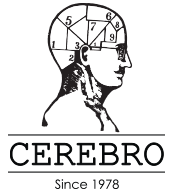Product Details
Alexander von Humbolt and Cuba Alberto Gutierrez writes: "Alexander von Humboldt is considered Cuba's second discoverer. His scientific work there was extraordinary.I strongly recomend the reading of his excellent "Ensayo Politico sobre la Isla de Cuba" to understand my homeland during the early days of the XIX century. Humboldt spoke Spanish fluently and considered himself "medio americano". Humboldt also was a free thinker, and all indicates that his ideas influenced Simon Bolivar. His opposition to slavery was noteworthy. He said: "While I support mankind, I also reject the unpleasant pretension of superior and inferior races. Having reached a higher level of culture, some races are more capable than others, but no race is more noble than other". In spite of the support of Cuban intellectuals and scientists, the Spanish colonial government in Havana prohibited the Ensayo because it felt threatened by Humbolt's principles. Humboldt and Aime Bonpland sailed from Venezuela to Cuba in November, 1800 and returned to Venezuela after spending a few months in Cuba. Hia Essai politique sur l'”le de Cuba was included in the unfinished Relation Historique (1814-1825). The University of Berlin was founded in 1810 by the classicist Wilhelm von Humboldt, the brother of Alexander, who set up the science departments. It was named the Friedrich Wilhelm University, It was closed during World War II and reopened in 1949 with the name Humboldt, honoring the two famous brothers. I know nothing about the statue Alberto speaks of, and I am puzzled why Cubans should have erected it. What were the circumstances? Did it have anything to do with Fidel Castro's visit to East Berlin? I visited the university during the Communist regime, hoping to speak with colleagues. However, everyone avoided me, frightened of being reported for speaking to a Westerner. At a seminar in Romania I had met an old intellectual who clearly did not feel constrained by the Communist regime. He was a member of the Academy, and he invited me to call on him there when I was in East Berlin. I went to the Academy, and at the reception desk asked to see him. The receptionist looked upset and disappeared to talk with her boss. After about five minutes she reappeared and simply said "There is no such person". I hope he was not reported for my attempt to see him. Stanford's motto is the old German saying "Die Luft der Freiheit weht"--the wind of freedom blows. It certainly did not blow in East Germany. Ronald Hilton - 10.04.03 TAKEN FROM http://wais.stanford.edu ANOTHER more general biography: Born on September 14th 1769 in Berlin, Jagerstrasse 22. Raised at Tegel Palace, the Humboldt family property, the Humboldt brothers register at the University of Frankfurt (Oder) in 1787. They move to Gottingen one year later. The two go their separate ways in 1790. Alexander von Humboldt takes excursions to various European countries. In 1790/91, he studies at the mercantile academy in Hamburg and the Mining Academy in Freiberg. Humboldt is appointed assessor of the Prussian mining department in Berlin in 1792. He resigns from civil service not least thanks to his general interest in natural sciences. A.von Humboldt devotes himself entirely to natural science studies, which take him on extended trips to a number of countries. In 1799, he sets out on his long research journey through Latin America, from which he does not return until 1804. He then moves to Paris, where he meets Simon Bolivar. Alexander von Humboldt receives his doctorate at the University of Frankfurt (Oder) in 1805. Upon his return to Berlin he becomes a member of the Academy of Sciences and is appointed lord-in-waiting to the Prussian king. He holds lectures and writes scientific papers. In 1807, he formulates recommendations for the reorganisation of the Berlin Academy. He travels to Paris on a diplomatic assignment. He returns to Berlin in 1827 and begins his lecture on the physical description of the Earth, his famous Kosmos lectures, at the Berlin University. In 1829, Humboldt sets out on his Russian Siberian research trip. Humboldt receives high honours upon his return. He has significant influence on the arts and sciences in Berlin. In 1848, he intervenes in the revolutionary events of that March as a mediator and pays the last honours to those killed in the fighting in the funeral procession. Alexander von Humboldt dies on May 6th 1859 in his apartment at Oranienburger Strasse 67 in Berlin. TAKEN from www.hu-berlin.de Alexander Humboldt appear on may different cigar labels
Company: Bustillo Bros. and Diaz
 View Cart {{shoppingcart.totalQuantityDisplay}} Item(s)
View Cart {{shoppingcart.totalQuantityDisplay}} Item(s)
 View Cart {{shoppingcart.totalQuantityDisplay}} Item(s)
View Cart {{shoppingcart.totalQuantityDisplay}} Item(s)
